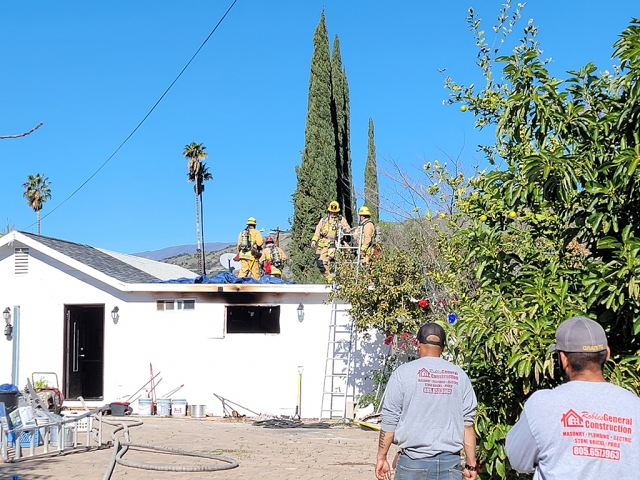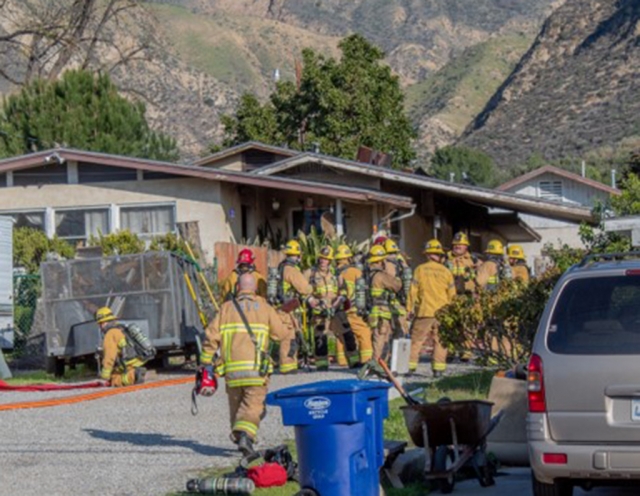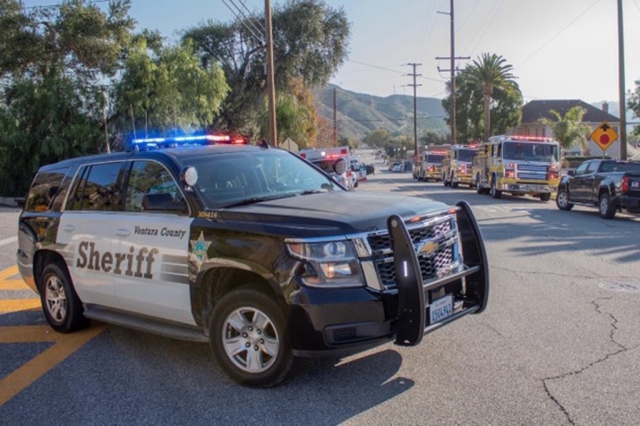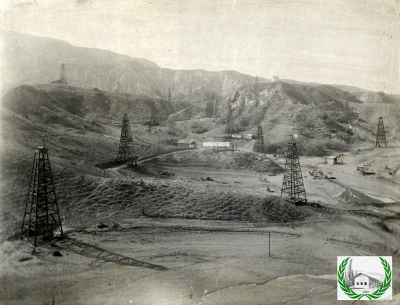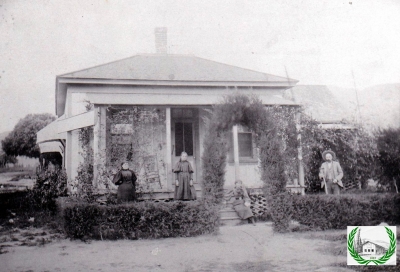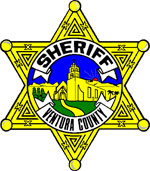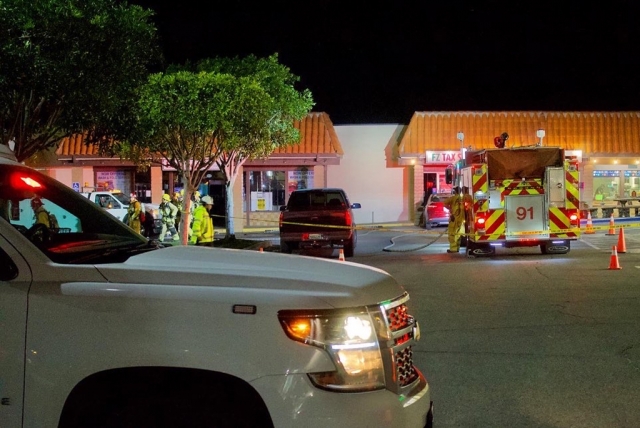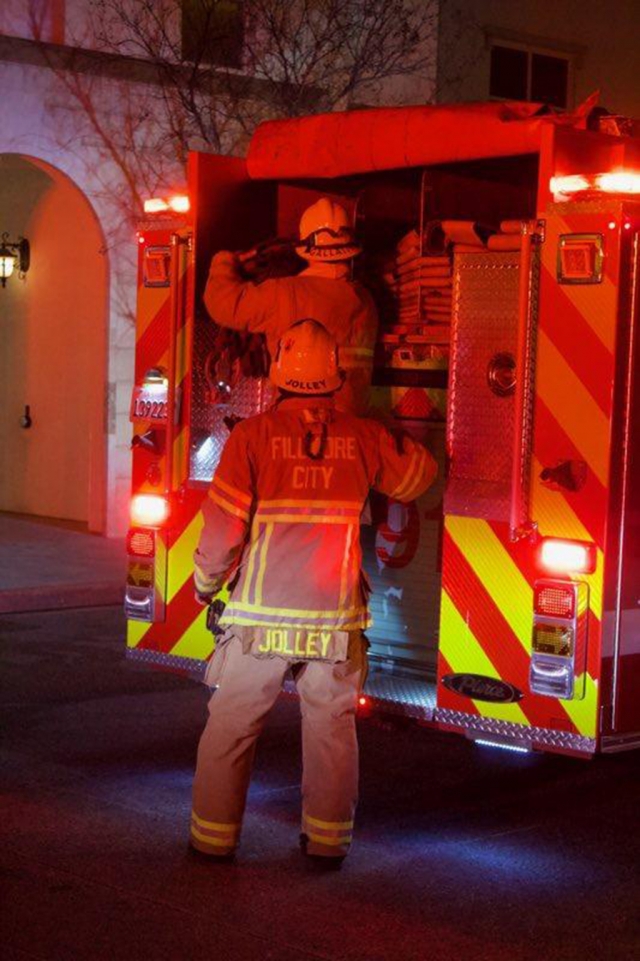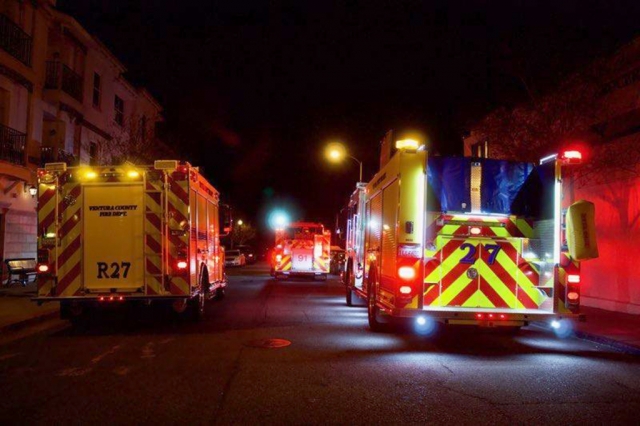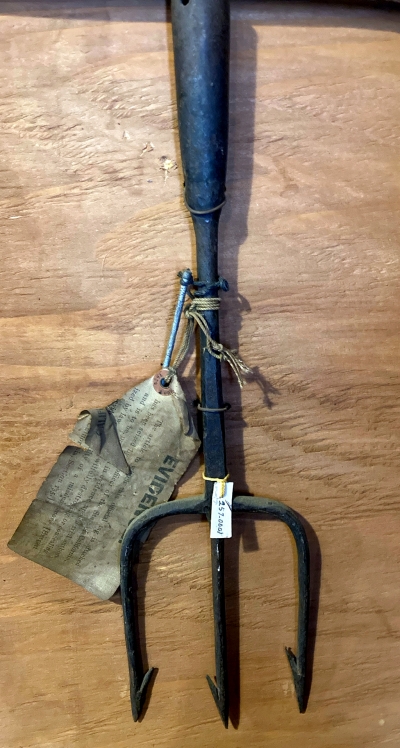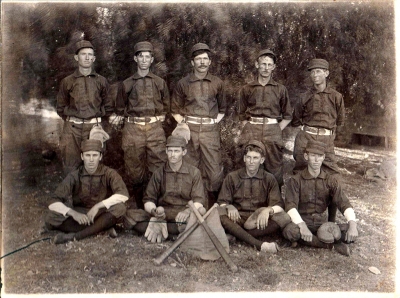|
By Gazette Staff Writers — Wednesday, January 26th, 2022
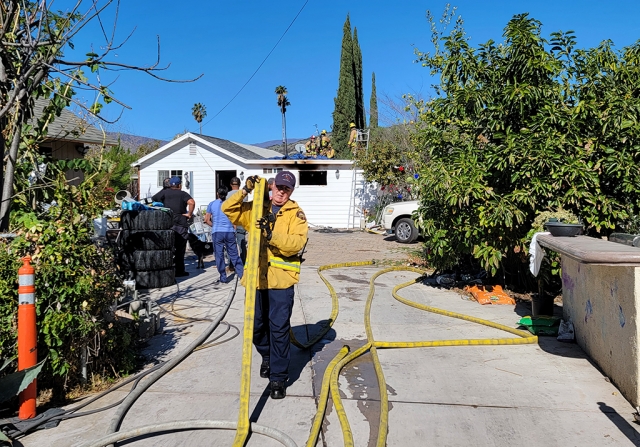 On Monday, January 24th, at 10:42am, Fillmore’s Engine 91, along with eight additional units, responded to a back house fire in the 100 block of Main Street. Crews were able to extinguish the flames quickly, with no injuries reported at the time of the incident. Cause of the fire is under investigation. Enlarge Photo |
|
By Gazette Staff Writers — Wednesday, January 26th, 2022
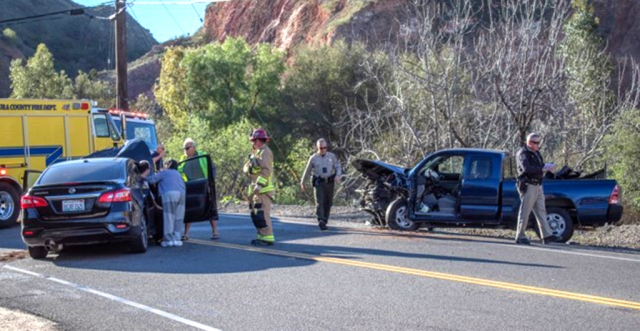 On January 22nd, 2022 at 8:29am, the Ventura County Fire Department, California Highway Patrol and AMR paramedics were dispatched to a head-on collision on Grimes Canyon Road south of Bardsdale. Arriving fire crews reported two vehicles involved, a black Nissan Sentra and a blue Toyota. One person was extricated from one of the vehicles and taken to Los Robles Hospital; a second patient suffered minor injuries. CHP closed both lanes; they were re-opened by 9:30am. Photo Credit Angel Esquivel-AE News. Enlarge Photo |
|
By Gazette Staff Writers — Wednesday, January 26th, 2022
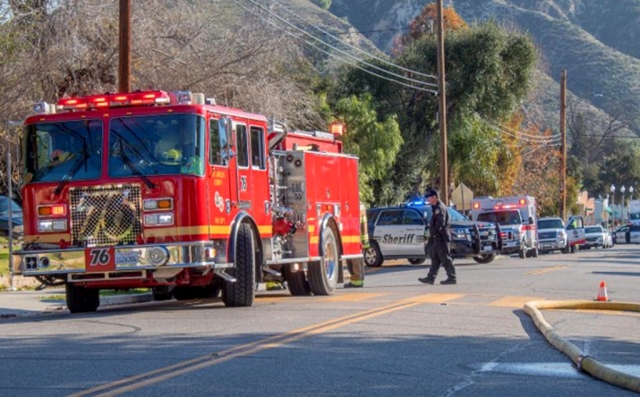 On January 21st, 2022, at 8:18am, the Ventura County Fire Department, Fillmore City Fire, EMS (AMR Supervisor Paramedic), Los Angeles County Fire and AMR paramedics were dispatched to a reported structure fire in the 3000 block of Center St., Piru. Arriving fire crews found a single-story single-family home with smoke displayed. Fire crews were making a transitional attack at the time. All residents were reported out. Two AMR ambulances were dispatched to the incident with one person treated for possible smoke inhalation. Fire was knocked down by 8:44am, and fire crews were checking for areas that the fire may have extended to. Fire investigator and Red Cross were also on scene. The Ventura County Sheriff’s Department was on scene with road closers at Center and Park Street, and Center and Main Street. Cause of the fire is under investigation. Photo Credit Angel Esquivel-AE News. Enlarge Photo |
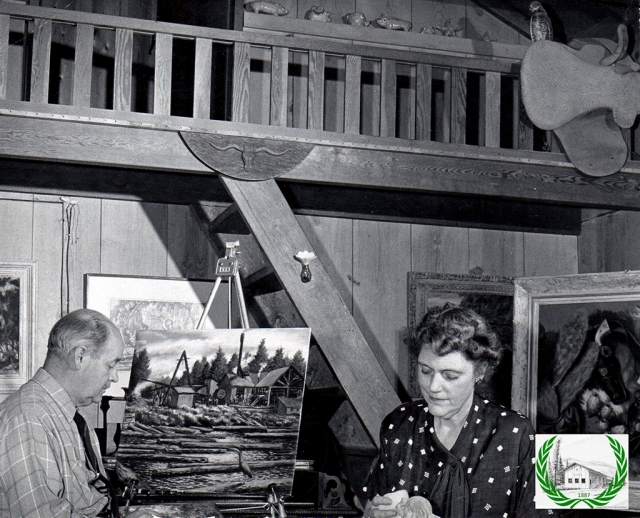 Lawrence and Mildred Hinckley in the Artists' Barn, who when they moved into the Barn, learned that rats had also lied there as well. Photos courtesy Fillmore Historical Museum. Enlarge Photo By Gazette Staff Writers — Wednesday, January 26th, 2022
Excerpted from “An Anecdotal History of Fillmore, California” compiled by Ken Fine. Copies are available at the Museum Gift Shop.
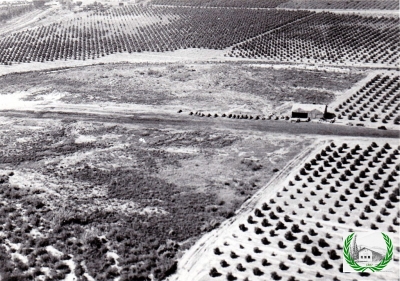 Fillmore's first air strip circa 1930 was on Sespe Land and Water Co. property behind what is now the El Dorado Mobile Park. Enlarge Photo 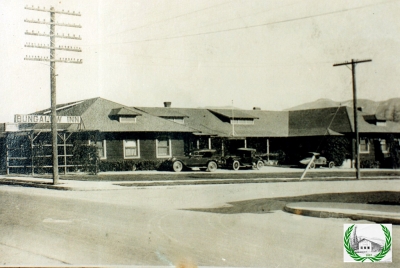 Bungalow Inn circa 1925, which was on the southeast corner of Fillmore and Santa Clara streets. Enlarge Photo “Remembered Trivia” The “Artists’ Barn” was actually a converted barn. After Mildred and Lawrence Hinckley moved in, they discovered they weren’t the only inhabitants. Night time was time for the rats to play. After trying traps, poison and every home remedy suggested, the final solution was arrived at. Lawrence had been taught at an early age to shoot a 22 rifle by his father, Ira Hinckley, He turned into an excellent shot but never a hunter as killing wasn’t his game. This was an emergency though, so out came the 22. One of the most successful wasn’t the time he shot a rat and it fell out of the attic, blood and all, around Mildred’s neck. We heard they weren’t speaking for a little while. Fillmore had its share of flying pioneers. The first airfield (early 1930s) was on Sespe Land and Water Co. property behind what is now the El Dorado Mobile Park. Marion McKeen, with his own plane, started the field. Peyt Burkey was the first local to have a plane. The local oil companies donated the oil for the landing strip and a hanger was built. It was quite successful with more locals taking part. In 1945 an airfield was built on the Basolo Ranch on the east side of Chambersburg Road past the Bardsdale Bridge. At its peak, 8 local planes and 6 planes owned by Los Angeles people were parked there. The field closed in 1950 because they couldn’t get a permit from the County to build hangers. Our own county supervisor voted against granting the permits. A couple of disasters in air travel happened near Fillmore. Marion McKeen lost a passenger out of his plane between Santa Paula and Fillmore. He was a Santa Barbara business man on a survey trip for an oil man named Casey. Peyt Burkey and his neighbor, Harry Hastings, crashed and were killed near the Sespe Bridge. Burkey owned a garage and Hastings was a building contractor in Fillmore. The first producing well brought in on the Shiells property (known as Montebello) up Shiells Canyon was in 1911. In 1934, C. C. Elkins got me a job (as you couldn’t just hire out) picking lemons. The wages were 17 1/2₵ an hour plus a bonus of 10 cents a box, which only the fastest picker could reach. After two weeks being low man in number of boxes, you were replaced. Good money was made in the tomato packing shed (across the tracks from the present lemon house) in the middle 1930’s. You got $2 a day plus bonus for labeling boxes and loading box cars. I first worked in the oil fields in 1940 on a promotion well on Elkins’ property. It paid $8.80 a day and carpenters were getting $4.50 a day. In 1915 gasoline sold for 16₵ a gallon. In1916 it rose to 21₵ a gallon. We put an ice card in the window for our ice. It had 25-50-75 in the corners and the number on top in the window was the amount the ice man brought in. Our box would hold 50 lbs., if partly chipped. The floor got mopped often when you forgot to empty the drain pan. The card didn’t take care of the booze, another of their services. That had to be ordered by phone or word of mouth during prohibition. Elmer Booth started the Bungalow Inn on the southeast corner of Fillmore and Santa Clara streets. He expected to serve meals, but never did, so the hardwood floor dining room was used for dances until it was done away with to make more rooms. Each room had an outside entrance andwas nice for that period.It wasn’t a huge success and he sold it and Elmer Booth went in the manure business with grandson Bull Manning. Manure was a very lucrative business in those days before liquid fertilizer. Sunnyside Rooms, northeast corner of Central and Ventura, rented rooms and had a few cabins, served meals that were all you could eat for 25 cents. It was run by two sisters. Rist Rooms were above Dunn’s hardware, northwest corner of Fillmore and Main. “Rist” was sometimes confused with “rest”, which caused some problems. In the early 1920’s my brother, Westley, and wife Lula managed these rooms. Our house had no bathtub, so I carried clean clothes up there and Lula gave me my bath. Then the fun started as she taught me to play all kinds of cards, poker, solitaire, etc. The Fillmore Inn [on] Central Avenue had a porch on both floors and on nice summer evenings they would be full with not only tenants but squiring couple from town. The Cottage Inn on the same location was the first in town. Mose Fine and his family stayed therein the 1890’s waiting for their homestead papers to be approved. |
|
By Gazette Staff Writers — Wednesday, January 19th, 2022
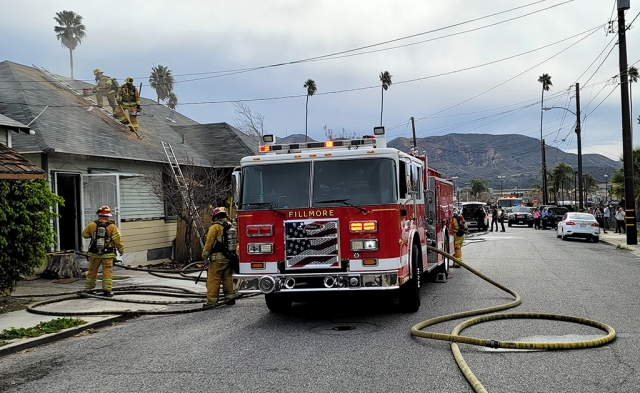 On Thursday, January 13th at 10:28am, a large house fire causing major interior damage was reported in the 200 block of Palm Street. Fillmore Sheriff and fire crews closed the street as they worked to extinguish the flames through both front and back entrances of the house. No injuries were reported at the time of the incident. Cause of the fire is under investigation. Enlarge Photo |
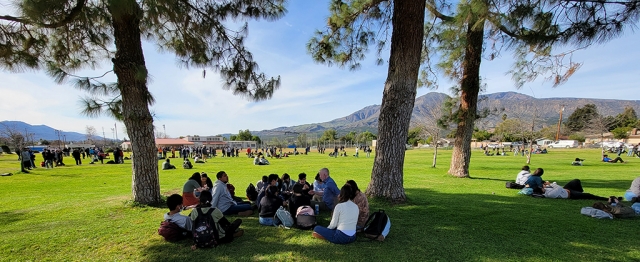 (above) Fillmore High students and staff evacuated to the baseball field. The Fillmore Unified School District worked closely with the Fillmore Police Department to provide support and safety for their students during the evacuation. Enlarge Photo By Ventura County Sheriff Department — Wednesday, January 19th, 2022
Multiple local public safety agencies responded to a bomb threat call at Fillmore High School. At approximately 11:00 AM, Fillmore High School received a bomb threat to the school’s campus. The high school’s staff immediately notified the School Resource Officers (SRO). Members of the Sheriff’s Bomb/Arson Unit and Sheriff’s Gang Unit arrived to assist with a search of the school. Members from the Ventura Police Department’s K-9 Unit and the Simi Valley Police Department’s K-9 Unit responded with K-9’s trained in bomb detection. The responding units conducted an extensive search of the high school’s campus. The search teams found no evidence of a bomb or suspicious items. The teams determined the school to be safe, and students were allowed to return to campus for their final period of the day. The Fillmore Unified School District worked closely with the Fillmore Police Department to provide support and safety for their students during the evacuation. The investigation into the threats is ongoing. Anyone with information regarding the threats is encouraged to call the Fillmore Police Department or Ventura County Crime Stoppers. Multiple Units Respond to Fillmore High School Bomb Threat Turns False Alarm Ventura County Crime Stoppers will pay up to $1,000 reward for information, which leads to the arrest and criminal complaint against the person(s) responsible for this crime. The caller may remain anonymous. The call is not recorded. Call Crime Stoppers at 800-222-TIPS (8477). |
|
By Gazette Staff Writers — Wednesday, January 19th, 2022
 On Tuesday, January 18th, multiple presentations were given during the FUSD School Board meeting. (Above) is Fillmore High School Principal Jacquie Day and students from various FHS clubs, along with Superintendent Schieferle, and Fillmore Unified School Board Trustees. Principal Day delivered an FHS update, including leaders from the Social Equality Club and the Mock Trial Club, each speaking about their club’s activities, and other programs available for students such as the Fillmore High Wellness Center and the New Career Tech Education classrooms. Photo courtesy https://www.blog.fillmoreusd.org. Enlarge Photo |
|
By Gazette Staff Writers — Wednesday, January 19th, 2022
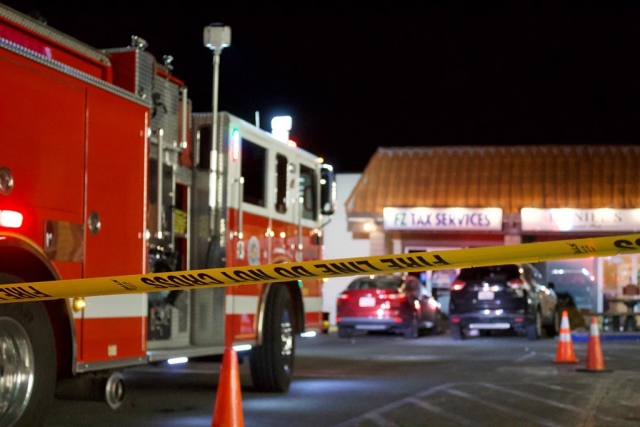 On Thursday, January 13th, 2022 at 7:40pm, Fillmore City Fire Department was dispatched to a hazardous condition call in the Super A Foods shopping center. Arriving fire crews reported a gas pipe that had been hit by construction workers while working on the sidewalk in front of the Laundromat. Fillmore Fire Chief Gurrola advised fire dispatch that seven businesses were evacuated for precaution. SoCal Gas was requested to respond to the scene; Ventura County Fire Station 27 crews were also dispatched to the call. The gas was shut down by 8:15 pm; fire crews were clear by 9:00pm. Photos courtesy Angel Esquivel—AE News. Enlarge Photo |
|
By Gazette Staff Writers — Wednesday, January 19th, 2022
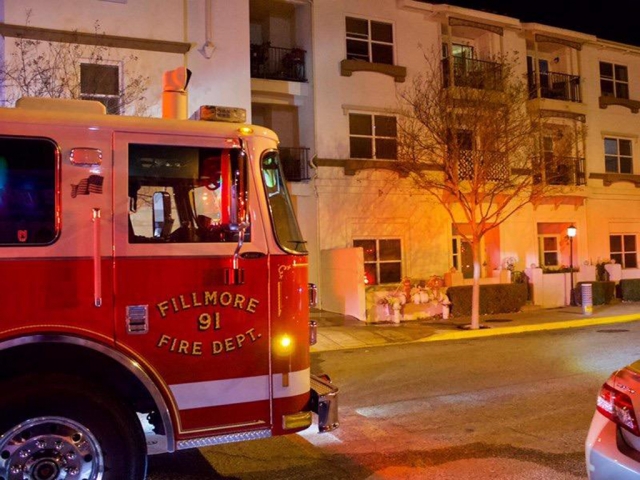 On Saturday, January 15th, 2022, at 3:45am, Fillmore Fire Department, Ventura County Fire, and AMR paramedics were dispatched to a reported structure fire at the Park View Apartments, 500 block Main Street. Arriving Fire crews found an unknown type of fire in apartments 209 and 219 that were extinguished before crews arrived on scene. AMR paramedics treated a female patient for unknown injuries; Red Cross, and fire investigators were also dispatched to the scene. No additional information was provided. Photos courtesy Angel Esquivel—AE News. Enlarge Photo |
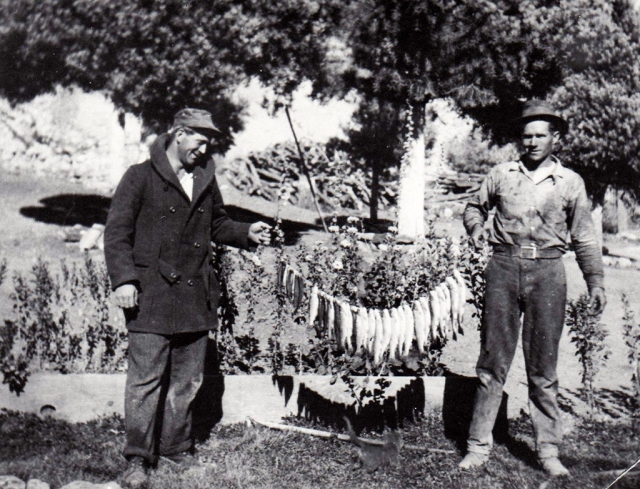 (Above) a fish catch circa 1920 with (at right) Charlie Brown. Photos courtesy Fillmore Historical Museum. Enlarge Photo By Gazette Staff Writers — Wednesday, January 19th, 2022
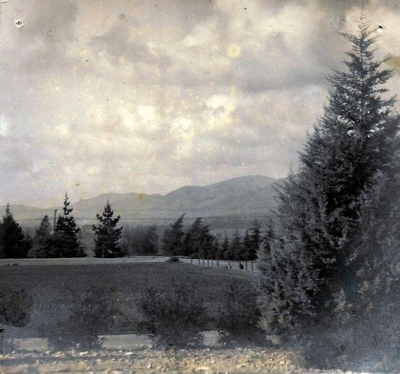 The Fillmore High School football field circa 1927, which ran east and west next to First Street, and was surrounded by Cedar trees. Enlarge Photo Excerpted from “An Anecdotal History of Fillmore, California” compiled by Ken Fine. Copies are available at the Museum Gift Shop. “Remembered Trivia” The Sespe River was noted all over the southland for its native trout and steelhead. On May 1st, which was the opening of trout season, Fillmore got pretty crowded. No rooms left to rent, no empty stools in the restaurants and you had to “take your own rock to stand on.” The limit was 25 fish. Steelhead were not too interested in biting, but most everyone had a spear of some kind. It was illegal, but locals figured they had to catch you. I’ve seen my grandfather, Mose Fine, and older brother, Westley, spear them. If it was a pretty big one, it was pretty easy to get wet. None of the real sportsmen of Fillmore ever took a job where the opening days of fishing and deer hunting weren’t legal holidays. If they did, they just quit the job. Pole Creek and a few of the oil properties were the only places you couldn’t hunt. Packing into the back country, Alamo Mountain and the head of Piru Creek on the other side of Alamo, were all favorite hunting spots. For quail hunting, you just went to the foothills most anyplace in the valley and started up the mountains. Limits of 10 were common. Dove hunting was enjoyed at Sprague’s pasture on the land owned by Jack Beekman’s uncle. You reached it by going up Grand Avenue to Ira Case’s place and turning left for about a mile. Certain spots on rivers were good too. The reservoirs over in Moorpark were hot spots in the evenings when the doves came in to water. Ducks were hunted on the Santa Clara River. Rancho Sespe built ponds below the ranch headquarters but they weren’t open to the public. The Basolos diverted part of the Santa Clara into a pond below their ranch for hunting by invitation only. The dikes around Point Mugu’s Duck Club was another popular spot. All the avid fishermen and hunters had no trouble with gates in the hills, as the all carried a duplicate key to the government locks. Charlie Law, his studio was at 114 First St, [?] was ranked as the third best taxidermist in the United States. One at Abercrombie and Fitch in New York was #1 and one in Denver was #2. I read his rating in a sports magazine but never could find it again for him. At one time, Lawrence Hinckley worked for him. In the 1940’s Charlie mounted a deer head for me for $17 and tanned the hide for $4. I spent many an hour with him. He used to give demonstrations on mounting animals to the Boy Scouts. Telephone lines were completed to Fillmore and Piru, August 12, 1892.In the 1930’s when the telephone office had good looking women operators instead of computers, it paid to listen in on Santa Paula’s long distance calls. Many a gay blade from Fillmore went to Santa Paula to place their calls to someone else’s wife. They did not think about all of Santa Paula’s long distance calls coming to the Fillmore office as Santa Paula had an independent phone company. In 1903 a bad fire destroyed most of the Fillmore business section, including Harmonson’s two-store store on the northwest corner of Central and Main Street was rebuilt as one building. Bowie’s was run by a Scotsman who had a big mustache and always wore a hat. He was a small man who like kids and kept a good supply of cheap candy. It was not uncommon for the first package of cigarettes purchased by underage boys to come from there. Servoss’ barber shop was well patronized. He was an old-timer in Fillmore. His son, Rex, was quite a baseball player in high school. He also held #2 badge in the California Highway Patrol for many years. Bert Halstead’s radio shop at 523 Santa Clara had a full house the night of the Dempsey-Tunney fights when Tunney won the heavyweight crown. The fans spilled out on the street so Burt put a radio out on the sidewalk for the overflow crowd. Ben Klotz, who had a cleaning shop and sold radios, sponsored and pitched for a baseball team. He was a finesse pitcher with a curve, drop, etc. His team’s claim to fame was a win over Pironnes Night Hawks, a pro team from Los Angeles. Albert Fine, first base, Orley Mosbarger, second; Pinky Elsworth, shortstop (My brother said he never threw a straight ball to him, always a curve); and Clarence Mayhew, third base. The high school football field used to run east and west next to First Street. It was surrounded by cedar trees and the west end made a good lovers’ lane. |

